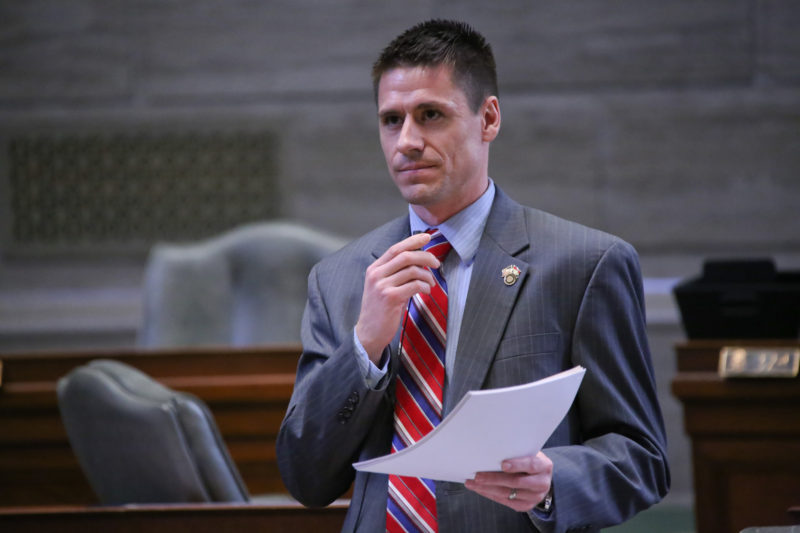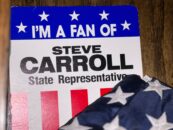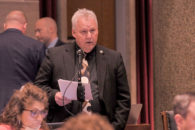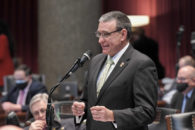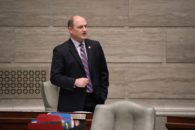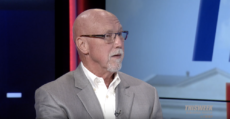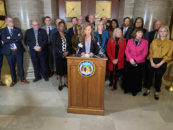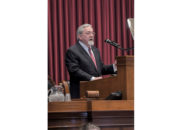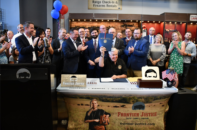As elected officials vacate Jefferson City and return to their families and jobs, The Missouri Times is bringing you updates on initiatives that didn’t quite make it through this year’s shortened session. The “Next Steps” series will showcase progress made on certain legislative issues and take a look ahead at what could come next.
With the state bouncing back from a turbulent financial period in the wake of the COVID-19 pandemic, some legislators have set their sights on a new tax stream for Missouri.
The House Local Government Caucus sent a letter to Gov. Mike Parson in late August urging him to call a special legislative session to establish a Wayfair tax law in Missouri. The legislation would allow the state to collect tax on online sales, a practice many states have made use of over the past couple of years following a 2018 Supreme Court decision. Rep. Donna Baringer, the vice-chair of the caucus, said it could help bolster the recovering economy.
“With the COVID-19 pandemic, online retail sales have skyrocketed, and the state’s inability to collect revenue on those transactions has become even more stark in the past few months,” Baringer said. “At the same time, our state’s economy has clearly suffered from the pandemic. Municipalities have lost revenue as economic activity has dropped, especially for small businesses and brick-and-mortar stores. Gov. Parson should call a special session so our state can access the resources we need to help struggling families across the state.”
Internet tax laws have passed in many states over the past couple of years following 2018’s South Dakota v. Wayfair, Inc., in which the U.S. Supreme Court said states could collect taxes on remote sales. Previously, states could only collect tax on transactions with businesses maintaining a physical presence in the state. Since the verdict, many states have passed their own legislation establishing an economic nexus, or a taxable threshold on online sales.
The idea has been proposed before in Missouri: Sen. Andrew Koenig sponsored a Wayfair tax bill in the previous session but maintained it came up on the floor at an inconvenient time and couldn’t pass.
“It actually came up on the Senate floor the day we broke for COVID-19, and I think we probably could’ve gotten it out of the Senate,” Koenig told The Missouri Times. “When we came back to session, we just didn’t have the time to work out a compromise on it.”
Koenig’s attempt was a provision in SB 648, which would have set the nexus at $100,000 in receipts over a 12 month period. A number of other attempts were filed in both chambers this year, with one from Sen. Lincoln Hough being sent back to the Senate’s informal calendar on the final day of the regular session.
The issue is a complicated one, Koenig said, and a special session could provide the focus needed to reach a compromise.
“There’s a lot of moving parts to it, and I think both senators and [representatives] agree that Wayfair should be passed, but the question is what version of the bill goes forward,” Koenig said. “Another issue is that it’s so broad in taxation; there are a lot of chapters open and a lot of potential for amendments, so there could be things that are completely unrelated to Wayfair that could get attached to the bill. All those things make it difficult to pull off. I think in a special session where we could really focus on it, it would certainly make it easier to do.”
Koenig said the lack of an internet tax is a way for vendors to avoid taxes, and the state has to compensate with higher taxes in other areas. He argued it incentivized consumers to make purchases from out-of-state businesses and removing the exemption would benefit Missouri financially.
“From a basic tax principle, it’s an issue to have that exemption,” Koenig said. “It’s definitely good for Missouri businesses to remove it.”
Koenig said he planned to propose similar legislation next year if the legislature does not take it up in a special session.
“My plan is definitely to sponsor it again in the future,” Koenig said. “There are multiple reasons it’s a good thing for Missouri. I think the best tax code is one that’s broad-based, one that has the least amount of exemptions, and I think Missourians want to see that passed in one form or another.”

Cameron Gerber studied journalism at Lincoln University. Prior to Lincoln, he earned an associate’s degree from State Fair Community College. Cameron is a native of Eldon, Missouri.
Contact Cameron at cameron@themissouritimes.com.

